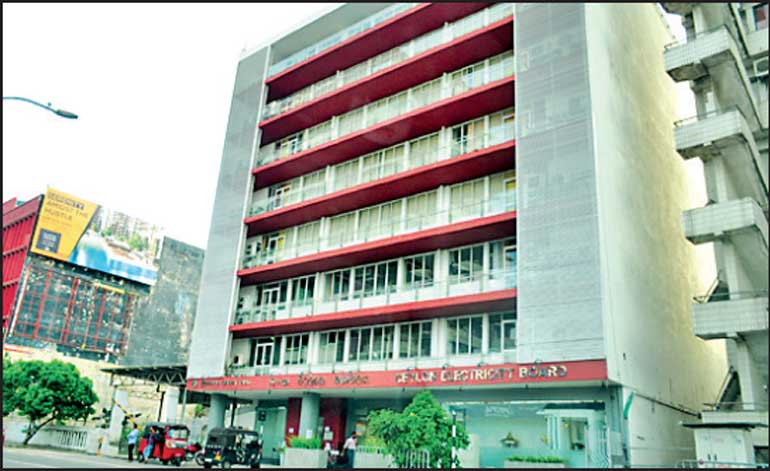Sunday Feb 22, 2026
Sunday Feb 22, 2026
Thursday, 12 October 2023 00:00 - - {{hitsCtrl.values.hits}}

The Ceylon Electricity Board (CEB) has informed the electricity regulator, the Public Utilities Commission of Sri Lanka (PUCSL) of a steady decline in income over the past three months, which prompted discussions of a tariff hike effective from October.
Accordingly, the income statements of the CEB revealed that July income of Rs. 55,163 million decreased to Rs. 53,193 million in August and further dropped to Rs. 50,590 million in September.
The CEB claimed this financial downturn has been attributed to a surge in demand coupled with a notable reduction in power generation capacity from coal and water sources. It has also informed that the estimated cost of operations has risen sharply. The CEB contends that these factors have necessitated a revision in tariffs to ensure the sustainability of operations. Earlier this month, the CEB proposed two options for tariff revision. The first involves a 22% increase in charges as a fuel surcharge applicable to all consumers. The second suggests an increase of Rs. 8 per unit of electricity consumed.
However, PUCSL Chairman Prof. Manjula Fernando emphasised that any decision regarding tariff adjustments will adhere to the provisions outlined in the Sri Lanka Public Utilities Commission Act and the Sri Lanka Electricity Act.
“According to Section 30 of the Sri Lanka Electricity Act, public opinions and suggestions should be listened to during tariff revision. Section 17 of the Sri Lanka Public Utilities Commission Act also states the need for public consultation. Thus, the Commission decided to seek public comments regarding the proposed tariff revision. All stakeholders including the public can submit their comments and suggestions to the commission in writing. In addition, the public has been given the opportunity to submit their comments and suggestions orally on 18 October,” he added.
Separately, Electricity Users Association President M.D.R. Athula voiced reservations, labelling the hike as untimely and potentially detrimental to economic activities.
“It is unfair by the CEB to cover the Rs. 31 billion loss from the already battered electricity users,” he stressed.
He argued that such an increase would lead to significant price hikes in essential commodities and further exert adverse impacts on industries and exporters.
Athula suggested collecting unpaid bills from electricity users, including Parliamentarians, to set an example for the country.
“While no donors are willing to settle electricity bills for families using least electricity units from 0-60, some MPs are willing to pay arrears of MPs running into millions. Maybe the Minister should start collecting dues without opting to hike tariffs unreasonably,” he said.
Following a 66% tariff hike in February 2023, the PUCSL subsequently reduced the tariff by 14.2% from 1 July.